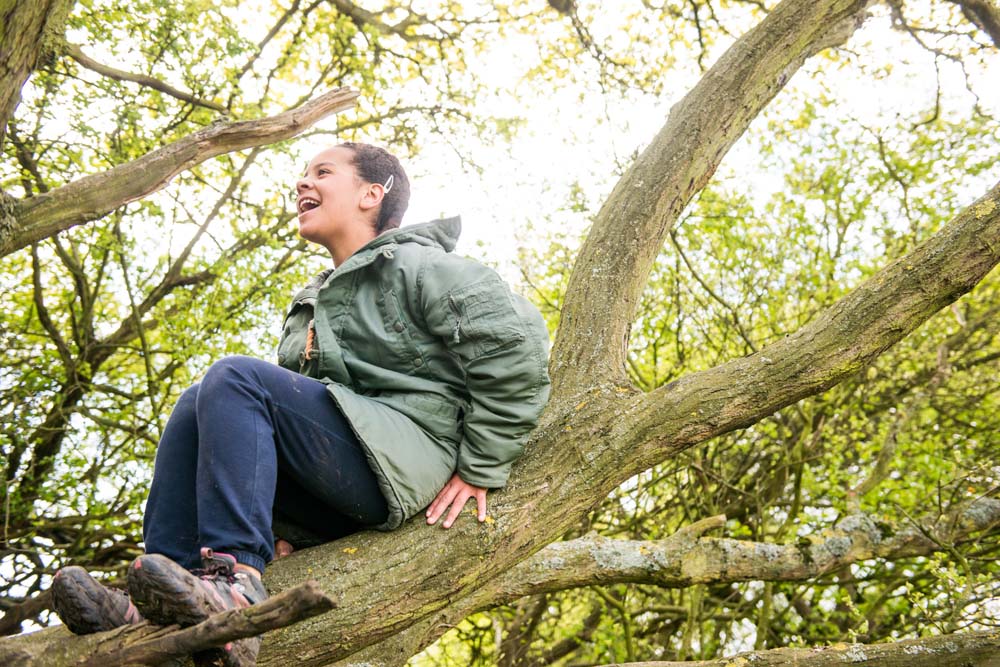Tips for welcoming and including new members
Ideas to help welcome and keep new volunteers and young people
Feeling welcomed and included encourages volunteers and young people to come back each week.
We've drawn on the successes of the membership alongside advice from organisations who engage with their communities, to share proven ways to be welcoming and including.
Tips from members
- Don't worry: You might not have all the answers, but you can find out.
- Ask: If you aren't sure, then respectfully ask. Find a quiet space, share you'd like to find out more, and then ask if they would be happy to share. Finally, listen to what they say.
- Find out: There's a wealth of information online and loads of charities and groups who can help support your understanding of engaging with specific communities.
- Make space: Allow people to engage meaningfully. Allow them to participate in running the group. Have parent rotas and ensure they can become part of the leadership team and share their ideas.
- Adapt: When involving volunteers in planning, you may need to be flexible with times and locations.
- Allow influence: A variety of people brings a variety of viewpoints. Let their experiences and ideas shape and enrich the programme.
- Adapt the activity not the people: Find a route with wheelchair access, simplify instructions and look online for adaptations.
- Preempt an adjustment: Buy the gluten free, vegan marshmallows so that the broadest of diets is included.
- Meet faith and spiritual needs: Build in both time and space for prayer and spiritual reflection as standard practice and don't tag it onto a comfort break. Going to the loo is not prayer or reflection time.
- Show you're open to the LGBTQIA+ community: Display a rainbow flag in your Scouts hut or on your webpages. Be involved in a Pride activity or go to Pride.
- Be open, transparent and flexible: It reaps rewards.
- Represent: Reflect the community you live in.
- Top Tip: You'll need to do something extra. Read through the tales of furthering reach and you'll see a common theme, all these stories involved volunteers going the extra mile.


We've partnered with Whizz-Kidz to provide some useful tips about supporting accessibility at Scouts.
Whizz-Kidz operate all over the UK and can offer your district or county some free wheelchair user training.
They're also able to empower young wheelchair users by providing the wheelchairs, equipment, support and confidence-building experiences they need, and campaigning for a more inclusive society.
- STOP making assumptions – do we actually need support? JUST ASK!
- ASK me if I want help DON’T assume.
- DON’T focus on what has happened to me, focus on me now and understand what I can and can't do now.
- Treat me the age I am – if unsure ask me what age I am.
- Be patient and talk to me if there’s something you want to know about me.
- DON’T expect me to be able to do everything but DON’T leave me out.
- Encourage me, be supportive and give appropriate feedback.
- Explain what we're doing in an accessible way – ensure that I understand.
- DON’T be scared to ask questions about what we can physically do – JUST ASK!
- Find solutions WITH me, NOT FOR me – make solutions TOGETHER.
- Talk to me and NOT my carer.
- DON’T be afraid to contact me before sessions to ask how I want to do something.
- Use the Social Model of Disability to coach (society adapts for need) rather than the Medical Model (something that needs solving).
- DON’T touch me or my chair
without permission, ask first! - Make sure we’re having FUN.
- Be patient with communication - I may need more time to process or answer you back.
- DON’T just walk in front of me when I'm doing something. I may not be able to see you there.
- I have human rights – respect them.
- Everyone deserves to be empowered/enabled.
- Nothing about us, without us.
- Intersectionality – don’t exclude by trying to include others.
- Don’t touch me and don’t touch my chair without my permission.
- Own your own inclusive practice – it’s everyone’s responsibility to be inclusive.
- Keep it simple – don’t overcomplicate it.
- To include me, ask me how I want to be included.
- Understand when you're being exclusive or inclusive – be self-aware.
- Inclusion is within everyone’s ability.
Volunteer Scotland's work on inclusive volunteering
Volunteer Scotland has done a huge amount of work to encourage greater inclusion in volunteering.
In 2017 they formed a national strategic group for inclusion in volunteering, with organisations such as Age UK, Scottish Refugee Council, LGBT Youth Scotland and many more.
They've produced 13 Top Tip guides on topics such as supporting volunteers with hearing loss. Have a look through their webpages for some great resources.
Top tips to help you create a positive volunteer experience